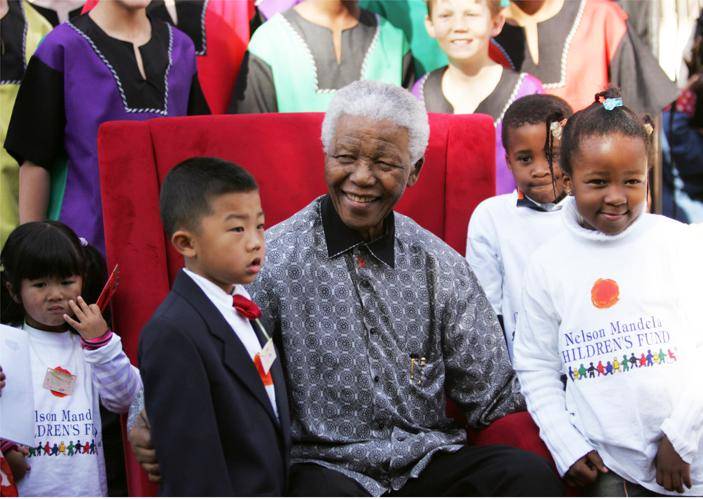
July has been declared Nelson Mandela Month, and is aligned to the national plan of action for Mandela Day, July 18.
As the nation celebrates this in honour of the departed statesman, the question must be asked: What practical steps can be taken with children from an early age to rid the country of racist practices, in keeping with Madiba’s values?
One way is by using a host of media channels and products targeted at children from the preschool stage to Grade 12.
These should include the use of cartoons and credible, free and ethical mass-media platforms, as well as influential stakeholders and institutions or structures advocating nation-building.
We have to use positive role models from our different political parties, worshippers from various religious persuasions, social partners, captains of industry, and influencers in the professional and academic sectors.
Featuring South Africa’s most admired public figures of all races matters because it will give credence to the entire process of nation-building.
Research has shown that the programming for any target audience is determined by the specific needs of the group in question.
So, programming for young children will require that the content, format and characters selected must match the emotional, cognitive and physical needs appropriate to their age.
South Africa can use drama persuasively to advance democratic values in its education system.
Research is replete with evidence confirming, as one expert puts it, that “the appropriate use of drama is likely to attain the engagement of feeling as it spontaneously locks into the desires, thoughts, insights and confusions of the participants.
Drama conducted in a democratic manner is also very likely to stimulate critical thinking and accessibility for many learning styles and ability levels.”
In my own experience, harnessing the unique advantages offered by a combination of poetry, drama and music enriches children’s educational activities and experiences, and provides a unique learning environment.
These subjects can have a lasting effect on the emotional wellbeing of individual learners.
Putting the vision of creating a nonracist South Africa into concrete action, and converting it into national values and aspirations, is no easy task.
It requires careful planning and negotiation.
It requires us to adopt an inclusive, multilayered approach to identifying local, regional and national heroes and heroines, past and present, to develop content and messages appealing to various segments of our society.
It is important to remember where we come from, to instil a sense of patriotism in our children and to remind one another that our individual freedoms are inextricably bound to broader societal freedom.
Our educational practices and campaigns should endeavour to address the problems of racism, xenophobia and tribalism from an early age.
Regardless of one’s political or religious views, our Constitution sets out the very framework of our society and is important both here and globally. As such, it needs to be read, understood and respected by all.
Over and above this, taking other practical steps to realise the South African dream of a “rainbow nation” – the term coined by Anglican Archbishop Emeritus Desmond Tutu – is desirable and possible.
It is tragic that our country is still confronted by debilitating incidents of racism, which find expression on social media platforms despite efforts to eradicate this scourge.
This has prompted us to mount an anti-racism campaign and fast-track the process of designing and developing a national plan to eradicate racism, racial discrimination and xenophobia.
While this is a step in the right direction, it is likely to upset political bigots as well as peacetime heroes and heroines among us, who stand to benefit from any incident that is likely to derail the process of nation-building to promote self-serving agendas.
It is unfortunate that there are some among us who have not yet harnessed that sense of justice and humanity that would spur them to support the country’s national-building plan of action.
This view is best articulated by G Ivey in his 1986 article, Elements of a Critical Psychology, which reads: “Each individual has a priority need for the development and actualisation of his or her potential for individuated functioning in harmony with other members of the community, and has, in potential, the rational capacity to adjudicate those needs and the means for their realisation.”
This statement resonates with the words of the late president Nelson Mandela.
He said: “No one is born hating another person because of the colour of his skin, or his background, or his religion.”
Each one of us has an obligation to embrace and support initiatives that are intended to empower individual members of society to liberate themselves from hegemonic patterns of thought and action.
Let us strive together to build a nonracial, nonsexist and democratic society, free of xenophobia and tribalism; to embrace our multilingualism and multiculturalism, and to guard the tenets of our Constitution.
Mokoena is director of research and policy at the Gauteng department of social development




 Publications
Publications
 Partners
Partners








